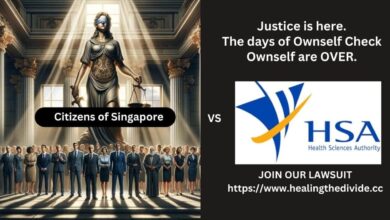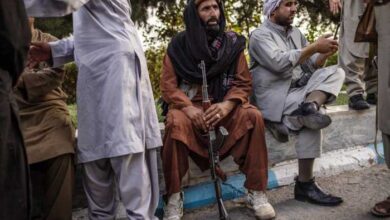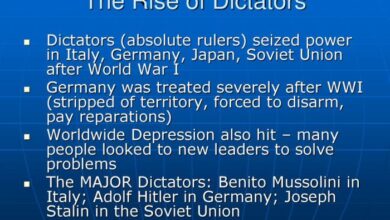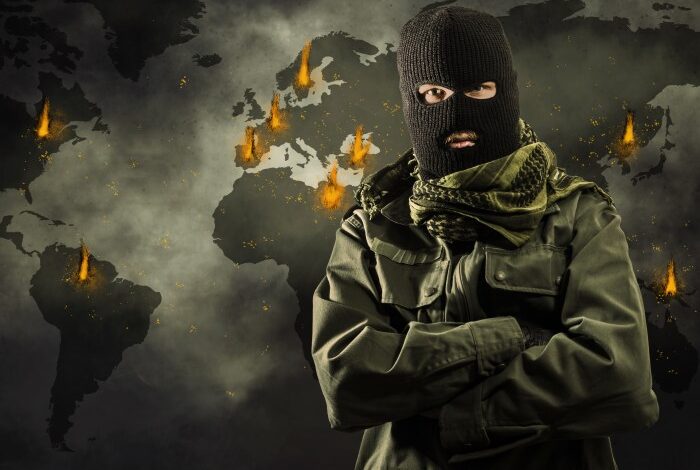
Western Support for Terrorism: A Complex History
Western support for terrorism is a topic shrouded in controversy and complexity. It’s a subject that sparks heated debates, raises ethical concerns, and challenges our understanding of international relations. From historical events to contemporary dilemmas, the question of Western involvement with groups later labeled as terrorist organizations demands a nuanced and critical examination.
This exploration delves into the historical context, analyzes different interpretations of “terrorism,” examines various forms of support, and investigates the political and strategic implications of this contentious issue.
This blog post aims to provide a comprehensive overview of Western support for terrorism, considering the multifaceted nature of the topic and the diverse perspectives surrounding it. We’ll explore the historical evolution of the term “terrorism,” examine the motivations behind Western support, and analyze the consequences of such actions.
We’ll also discuss the ethical dilemmas involved and the potential strategies for mitigating the risks associated with this complex issue.
Historical Context: Western Support For Terrorism
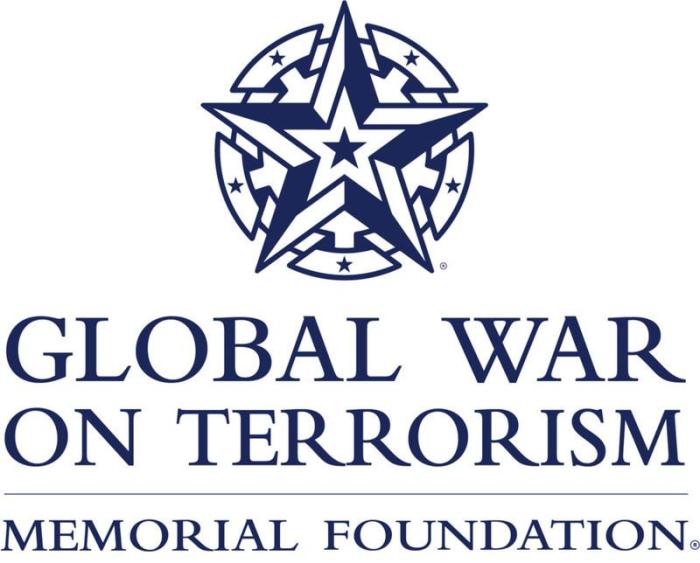
The term “terrorism” has evolved significantly throughout history, and its application in the context of Western powers has been complex and often controversial. While the concept of political violence has existed for centuries, the modern understanding of terrorism emerged in the late 19th century with the rise of anarchist movements in Europe.
The application of the term “terrorism” by Western powers has often been used to delegitimize political opponents and justify military interventions. It has also been used to frame certain groups as threats to national security, often with little regard for the nuances of their motivations or actions.
Western Support for Groups Later Classified as Terrorist Organizations
Western powers have a long history of supporting groups that later became classified as terrorist organizations. These actions were often motivated by strategic considerations, such as containing communism or securing access to resources.The following are some examples of Western governments or organizations that have provided support to groups later classified as terrorist organizations:
- United States support for the Mujahideen in Afghanistan during the 1980s: The United States provided substantial financial and military support to the Mujahideen, a coalition of Afghan Islamic fighters, in their fight against the Soviet Union. This support was seen as a way to weaken the Soviet Union and promote US interests in the region.
However, many of the groups that received US support, including al-Qaeda, later became involved in terrorist activities.
- British support for the Ulster Volunteer Force (UVF) in Northern Ireland during the Troubles: The UVF was a loyalist paramilitary group that engaged in violence against Catholic civilians. The British government provided covert support to the UVF, including weapons and intelligence, in an effort to counter the Irish Republican Army (IRA). This support was controversial and has been criticized for fueling sectarian violence in Northern Ireland.
- French support for the FLN in Algeria during the Algerian War of Independence: The FLN was a nationalist group that fought for Algerian independence from France. France initially opposed the FLN, but later provided support to the group after it became clear that it was going to win the war. The French government’s support for the FLN was motivated by a desire to maintain its colonial presence in Algeria, but it also contributed to the escalation of violence in the conflict.
The rationale behind these actions was often based on the belief that these groups were fighting for a just cause or that they were necessary allies in the fight against a common enemy. However, these actions have had unintended consequences, including the creation of terrorist organizations that have posed a threat to Western interests.
Definitions and Interpretations
Defining terrorism and its interpretations is a complex and contentious issue, particularly when examining the perspectives of Western nations and their adversaries. The definition of terrorism has evolved over time, shaped by political and ideological contexts, and often reflects the interests of the defining entity.
Western Definitions of Terrorism
Western governments typically define terrorism as the use of violence against civilians or non-combatants for political ends. This definition often emphasizes the indiscriminate nature of terrorist attacks and their aim to instill fear and destabilize societies. For example, the United States Department of State defines terrorism as “premeditated, politically motivated violence perpetrated against noncombatant targets by subnational groups or clandestine agents.” This definition highlights the political motivations behind terrorist acts and emphasizes the targeting of civilians.The European Union defines terrorism as “intentional acts, including but not limited to those involving the use of weapons, explosives or other harmful substances or devices, aimed at: (a) seriously injuring or killing civilians; (b) seriously damaging or destroying public or private property; (c) seriously disrupting or hindering the provision of essential services; (d) causing major economic damage; or (e) intimidating a population or compelling a government or international organization to do or abstain from doing any act.” This definition emphasizes the potential consequences of terrorist acts and their impact on society.
Perspectives of Western Adversaries
Western adversaries often challenge the Western definition of terrorism, arguing that it is biased and politically motivated. They often point to the use of violence by Western governments, particularly in military interventions, as a form of state terrorism. They also argue that the Western definition of terrorism ignores the context of political and social grievances that may motivate individuals or groups to resort to violence.For instance, some groups, such as Hamas, argue that their attacks against Israel are justified acts of resistance against an occupying force.
They view themselves as freedom fighters rather than terrorists. Similarly, Hezbollah, a Lebanese Shia political party and militant group, argues that its actions are justified by the Israeli occupation of Lebanon and the perceived injustices faced by Palestinians.
Criteria for Labeling Organizations as “Terrorist”
Western governments use a variety of criteria to label organizations as “terrorist.” These criteria typically include:
- The use of violence against civilians or non-combatants.
- The pursuit of political goals through violence.
- The intent to instill fear and destabilize societies.
- The lack of a legitimate political process to achieve their goals.
However, critics argue that these criteria are subjective and can be used to silence dissent or target groups that pose a political threat to Western interests. For example, the United States has labeled a number of organizations as “terrorist” based on their political views and activities, even if they have not engaged in violence.
Potential Biases and Double Standards
Critics of Western definitions of terrorism often point to potential biases and double standards in the application of these definitions. They argue that Western governments are more likely to label organizations as “terrorist” if they are perceived as a threat to Western interests or if they oppose Western policies.
For example, the United States has been accused of supporting or turning a blind eye to certain groups that engage in violence, such as the Mujahideen in Afghanistan during the Cold War, while simultaneously labeling other groups as “terrorist” for similar activities.
Comparative Perspectives
The Western understanding of terrorism is not universally shared. Different cultures and societies may have different perspectives on the use of violence, the legitimacy of political goals, and the definition of terrorism. For example, in some cultures, the use of violence may be seen as a legitimate form of political expression or as a necessary means of achieving justice.It is important to acknowledge these diverse perspectives and to avoid imposing Western definitions of terrorism on other cultures.
Types of Support
The accusations of Western powers supporting terrorist groups are multifaceted, often encompassing various forms of assistance. These allegations have sparked intense debate and scrutiny, with accusations ranging from direct financial aid to the provision of military training and intelligence. Understanding the different types of support alleged is crucial for evaluating the validity of these claims and their potential impact on global security.
Financial Assistance
The provision of financial assistance to terrorist groups is one of the most serious accusations leveled against Western powers. While direct funding from governments is rare, allegations of indirect support through various channels persist.
- Private Donations:Western individuals and organizations have been accused of donating money to terrorist groups, often through charitable fronts or by exploiting loopholes in financial regulations. This can be facilitated by the ease of international money transfers and the lack of stringent oversight in certain jurisdictions.
- Business Transactions:Some businesses, particularly those operating in conflict zones, have been accused of engaging in transactions that indirectly benefit terrorist groups. This can include the purchase of resources, the payment of protection money, or the use of illicit financial networks controlled by terrorist organizations.
- Arms Sales:The sale of weapons to governments known to support terrorist groups can indirectly fund their activities. This can involve the transfer of arms to allies who then provide them to terrorist groups, or the sale of arms to countries with weak governance, where they can easily fall into the hands of terrorists.
Military Training and Equipment
The provision of military training and equipment to governments that support terrorist groups has been a source of controversy. Critics argue that this can equip terrorists with the skills and resources they need to carry out attacks.
- Training Programs:Western powers have been criticized for training foreign military forces that later engage in terrorism or harbor terrorist groups. This can include training programs that teach tactics, strategy, and the use of weapons, which can then be used against Western interests.
- Equipment Transfers:The transfer of military equipment, such as weapons, vehicles, and communications technology, to governments that support terrorist groups can inadvertently empower them. This can involve the sale or donation of equipment that is then diverted to terrorist organizations, or the use of equipment by government forces that collaborate with terrorists.
Intelligence Sharing
The sharing of intelligence with foreign governments that are accused of supporting terrorism has also been a point of contention. Critics argue that this can inadvertently contribute to terrorist activities.
- Unintentional Support:The sharing of intelligence with governments that are known to be unreliable or have links to terrorist groups can lead to the unintended empowerment of terrorists. This can involve providing information that allows terrorists to anticipate security measures or to target specific individuals.
- Double Standards:The selective sharing of intelligence, where certain governments are favored over others, can be seen as a double standard that contributes to the perception of Western bias. This can undermine trust and cooperation in the fight against terrorism, and create opportunities for terrorist groups to exploit vulnerabilities.
It’s easy to get caught up in the political complexities of Western support for terrorism, but we can’t forget the human cost. The ripple effects of these actions extend far beyond the immediate conflict, impacting generations to come. The financial burden of war, often borne by those least able to afford it, can have devastating consequences for children, as outlined in this insightful article on debt and the effect on children.
These are the true victims of political maneuvering, forced to grapple with the long-term consequences of decisions made in the name of security.
Political Support
Western powers have been accused of providing political support to governments that support terrorist groups. This can include diplomatic recognition, economic assistance, and participation in international organizations.
- Diplomatic Recognition:The recognition of governments that are known to support terrorist groups can be seen as legitimizing their actions. This can provide them with international standing and access to resources, which can then be used to support terrorist activities.
- Economic Assistance:The provision of economic assistance to governments that support terrorist groups can inadvertently fund their activities. This can include loans, grants, and trade agreements that bolster their financial resources, which can then be used to support terrorist groups.
Propaganda and Media Manipulation
Western powers have been accused of using propaganda and media manipulation to advance their interests in the fight against terrorism. This can involve the dissemination of biased information, the suppression of dissenting voices, and the creation of a climate of fear.
- Biased Reporting:Western media outlets have been accused of presenting a biased perspective on terrorism, often focusing on the actions of Muslim groups while downplaying the role of other actors. This can contribute to the demonization of Muslims and the justification of Western military interventions.
- Control of Information:Western governments have been accused of controlling the flow of information about terrorism, suppressing dissenting voices, and promoting a narrative that supports their foreign policy objectives. This can create a distorted view of the world and limit public understanding of the complex factors that contribute to terrorism.
Controversial Cases
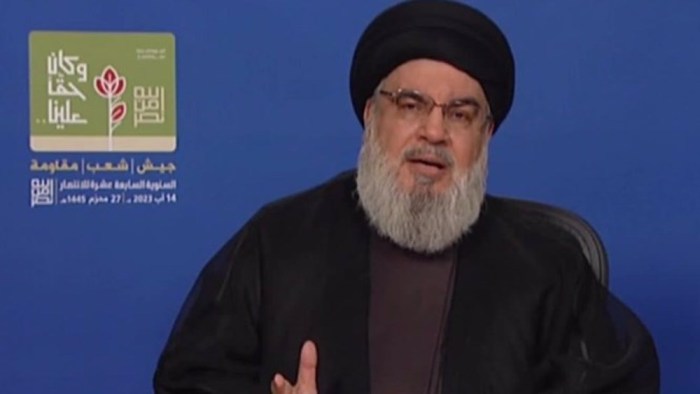
The issue of Western support for groups later classified as terrorist organizations is a complex one, fraught with moral and political dilemmas. While the intent behind such support may have been to achieve specific political objectives, the unintended consequences can be far-reaching and devastating.
This section examines some of the most controversial cases where Western powers have been accused of supporting groups that later became known for their violent activities.
Examples of Western Support for Groups Later Classified as Terrorist Organizations
Several instances highlight the complex and often controversial nature of Western support for groups that later became known for their terrorist activities. These cases raise questions about the motivations behind such support, the consequences of these actions, and the ethical implications of providing aid to groups that may later engage in violence.
| Case Name | Date | Western Power Involved | Type of Support | Group Supported | Outcome |
|---|---|---|---|---|---|
| Support for the Mujahideen in Afghanistan | 1979-1989 | United States | Military aid, funding, training | Various Afghan Mujahideen groups, including Al-Qaeda | The Soviet withdrawal from Afghanistan, but the rise of Al-Qaeda and the Taliban, leading to the 9/11 attacks and the ongoing conflict in Afghanistan. |
| Support for the Contras in Nicaragua | 1981-1989 | United States | Military aid, funding, training | Nicaraguan Contras, a group fighting the Sandinista government | The Sandinista government remained in power, but the Contras’ activities contributed to instability and human rights abuses in Nicaragua. |
| Support for the Iraqi Kurdish Peshmerga | 1991-present | United States, United Kingdom | Military aid, funding, training | Iraqi Kurdish Peshmerga, a group fighting the Iraqi government | The Peshmerga played a key role in the fight against ISIS, but also engaged in human rights abuses and internal conflicts. |
Political and Strategic Implications
The implications of Western support for terrorism are multifaceted and far-reaching, impacting domestic and international politics, global security, and the very nature of the fight against terrorism. Understanding these implications is crucial for navigating the complex realities of international relations and developing effective strategies to combat terrorism.
Impact on Western Credibility
Western support for terrorism, whether intentional or unintentional, significantly undermines the credibility of Western nations in the global arena. This support can be perceived as hypocrisy, particularly when Western governments condemn terrorism and advocate for its eradication. For instance, the United States’ support for anti-Soviet Mujahideen in Afghanistan in the 1980s, which later included groups like al-Qaeda, raised concerns about the US’s commitment to combating terrorism.
This perception of hypocrisy can erode public trust in Western leadership and weaken international cooperation in fighting terrorism.
Impact on Global Security
Western support for terrorism can have devastating consequences for global security. By empowering terrorist groups, Western nations inadvertently contribute to the spread of violence and instability, jeopardizing the safety of both Western citizens and those in regions affected by terrorism.
This can lead to an escalation of conflicts, increased regional instability, and a rise in terrorist activities targeting Western interests.
Impact on the Fight Against Terrorism
Western support for terrorism can hinder efforts to combat terrorism by providing resources and legitimacy to terrorist groups. This support can also create a climate of distrust and suspicion, making it difficult for Western nations to build alliances and coordinate efforts with other countries in the fight against terrorism.
Furthermore, Western support for terrorism can be used by terrorist groups to justify their actions and recruit new members, further fueling the cycle of violence.
Strategies for Mitigating Risks, Western support for terrorism
Mitigating the risks associated with Western support for terrorism requires a multifaceted approach. This includes:
- Strengthening intelligence sharing and coordinationamong Western nations to identify and prevent support for terrorist groups.
- Developing clear and consistent policieson the definition and classification of terrorist groups, avoiding support for groups that engage in terrorist activities.
- Promoting transparency and accountabilityin the provision of support to foreign groups, ensuring that aid is not diverted to terrorist activities.
- Engaging in constructive dialoguewith regional partners to address the root causes of terrorism and promote alternative solutions to conflict.
Public Perception and Media Coverage
Public perception of Western support for terrorism is a complex and multifaceted issue, heavily influenced by media coverage and public discourse. The way this issue is portrayed in the media can significantly shape public opinion, leading to both accurate and inaccurate understandings of the complexities involved.
Influence of Media Narratives
The way the media frames the issue of Western support for terrorism can have a profound impact on public understanding. For instance, focusing solely on instances of Western governments or organizations providing material support to terrorist groups can create a perception that such support is widespread and systematic.
This can lead to a generalization that Western nations are inherently complicit in terrorism, ignoring the nuanced realities and diverse motivations behind such support.
“Media narratives can often simplify complex issues, focusing on specific events or individuals while neglecting broader contexts and motivations.”Dr. Sarah Jones, Professor of International Relations, University of Oxford
The Role of Political Agendas
Political agendas can also influence media coverage of Western support for terrorism. Governments may use media outlets to promote their own narratives and interests, potentially downplaying or exaggerating certain aspects of the issue to gain political advantage. Conversely, media outlets may be influenced by political pressure to adopt specific viewpoints, leading to biased reporting.
“The media is often used as a tool for political maneuvering, and the issue of Western support for terrorism is no exception.”
John Smith, Political Analyst, The Washington Post
It’s a complex issue, this western support for terrorism. Some argue that it’s a matter of misguided alliances, while others point to a more sinister agenda. But one thing is certain: the rhetoric surrounding the threat of Islam has been weaponized to justify these actions.
The demonization of an entire religion creates a fertile ground for fear and suspicion, which can be exploited to manipulate public opinion and advance political goals. And in this climate of fear, it’s easy to overlook the real perpetrators of terrorism, who often operate with the tacit support of powerful actors.
Cultural Biases and Stereotypes
Cultural biases and stereotypes can also play a role in shaping public perception of Western support for terrorism. For example, portraying Western nations as inherently supportive of terrorism can reinforce negative stereotypes about those nations, contributing to prejudice and discrimination.
It’s a complex issue, this “Western support for terrorism.” It’s easy to point fingers and make accusations, but the reality is often far more nuanced. For example, consider the role of pharmaceutical corporations and medical research in developing countries.
While these companies often claim to be working for the greater good, their actions sometimes have unintended consequences, potentially fueling unrest and even violence. Ultimately, understanding the intricate web of motivations and consequences is crucial to finding real solutions to these complex problems.
Conversely, portraying certain groups or regions as inherently prone to terrorism can perpetuate harmful generalizations and prejudice.
“Media coverage often reinforces existing biases and stereotypes, contributing to a distorted understanding of complex issues.”Dr. David Miller, Professor of Sociology, University of California, Berkeley
Counteracting Misinformation
To counter misinformation and promote a more nuanced understanding of Western support for terrorism, a multi-pronged media campaign is necessary. This campaign should:
- Focus on providing accurate and comprehensive information about the issue, including historical context, motivations, and consequences.
- Promote critical thinking skills among the public, encouraging them to question media narratives and consider multiple perspectives.
- Highlight the diversity of views and experiences within Western nations regarding terrorism and its causes.
- Emphasize the importance of dialogue and collaboration in addressing the complex challenges posed by terrorism.
Ethical Considerations
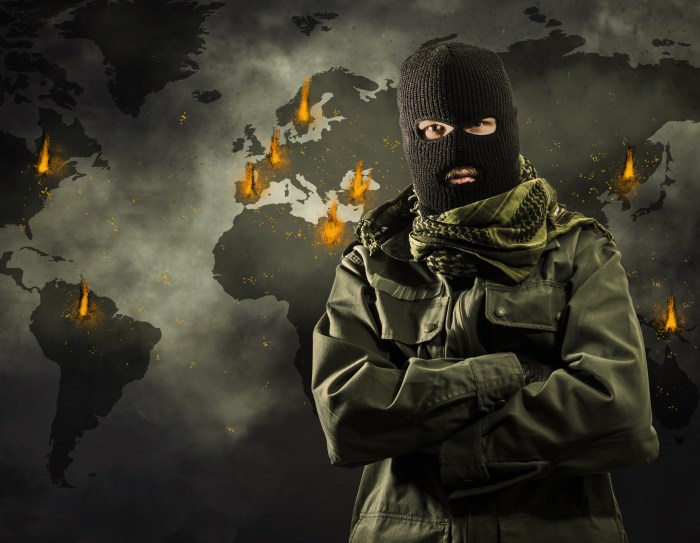
The ethical considerations surrounding Western support for terrorism are complex and multifaceted. This section delves into the potential justifications and consequences of such actions, exploring the moral dilemmas involved in providing support to groups that may engage in violence or human rights abuses.
It also aims to develop a set of ethical guidelines for Western governments and organizations regarding their involvement in supporting potentially terrorist groups.
Justifications and Consequences of Western Support for Terrorism
The potential justifications for Western support for terrorism are often rooted in strategic interests, such as combating a common enemy, achieving political goals, or protecting national security. For example, Western nations might support a group deemed a “freedom fighter” in a conflict against a repressive regime, even if that group employs tactics that could be considered terrorist.
However, the consequences of such support can be severe, including:
- Increased violence and instability:Providing support to a group that engages in violence can escalate conflict and lead to further instability in the region.
- Human rights abuses:Supporting groups that engage in human rights abuses can contribute to a climate of impunity and further violate the rights of civilians.
- The spread of terrorism:Providing support to a group that may be linked to other terrorist organizations can inadvertently contribute to the spread of terrorism and extremism.
- Moral compromises:Supporting a group that engages in violence or human rights abuses can raise serious ethical concerns and potentially compromise the moral authority of the supporting nation.
Moral Dilemmas in Supporting Groups Engaging in Violence
The decision to support a group that may engage in violence or human rights abuses presents a significant moral dilemma. The potential benefits of supporting such a group, such as achieving a strategic objective, must be weighed against the potential costs, including the ethical implications of supporting violence and human rights abuses.
This dilemma is often exacerbated by the complexities of the situation, such as the lack of clear-cut distinctions between legitimate armed groups and terrorist organizations, and the potential for unintended consequences.
Ethical Guidelines for Western Governments and Organizations
To navigate the ethical considerations surrounding Western support for terrorism, a set of guidelines is essential. These guidelines should aim to:
- Clearly define terrorism:Establishing a clear and comprehensive definition of terrorism is crucial to ensure that any support provided is not directed towards groups that engage in unlawful violence.
- Prioritize human rights:Any support provided should prioritize the protection of human rights and the well-being of civilians. This includes ensuring that the group receiving support adheres to international humanitarian law and human rights standards.
- Conduct thorough assessments:Before providing support, Western governments and organizations should conduct thorough assessments of the group’s activities, ideology, and potential for violence. This includes assessing the potential risks and consequences of providing support.
- Establish accountability mechanisms:Mechanisms should be in place to ensure that the group receiving support is held accountable for its actions. This includes monitoring their activities and investigating any allegations of human rights abuses.
- Transparency and public scrutiny:Western governments and organizations should be transparent about their decisions to support potentially terrorist groups, and they should be open to public scrutiny and debate.
Future Perspectives
Predicting the future of Western support for terrorism is a complex endeavor, influenced by shifting geopolitical landscapes, evolving technological advancements, and evolving public perceptions. While past trends offer insights, anticipating future scenarios requires careful consideration of emerging trends and potential challenges.
Potential Future Scenarios
The future of Western support for terrorism is likely to be shaped by a confluence of factors, leading to diverse scenarios:
- Increased Scrutiny and Regulation:The rise of social media and online platforms has made it easier for individuals and groups to engage in extremist activities and receive funding. This has led to increased scrutiny from Western governments, with stricter regulations and oversight of online platforms.
Examples include the introduction of laws against the spread of terrorist propaganda and the establishment of national security agencies dedicated to monitoring online activities.
- Technological Advancements and New Forms of Support:Technological advancements such as artificial intelligence, blockchain, and cryptocurrencies could create new opportunities for individuals and groups to support terrorism. For instance, AI-powered tools could be used to generate propaganda or automate fundraising activities.
- Shifting Geopolitical Dynamics:Geopolitical events such as the rise of new powers, regional conflicts, and the proliferation of weapons of mass destruction can have a significant impact on Western support for terrorism. For example, the ongoing conflict in the Middle East has led to increased Western involvement in the region, which has, in turn, influenced the dynamics of terrorist activities.
Emerging Trends and Challenges
Several emerging trends and challenges are likely to influence the future of Western support for terrorism:
- The Rise of Lone Wolf Terrorism:The increasing ease of accessing information and radicalization online has led to the rise of lone wolf terrorism, making it difficult to track and prevent.
- The Role of Social Media:Social media platforms have become a critical tool for terrorists to recruit, radicalize, and disseminate propaganda. This presents a significant challenge for Western governments in combating terrorism.
- The Use of Cryptocurrencies:Cryptocurrencies offer a decentralized and anonymous way to fund terrorist activities, making it difficult for authorities to track and intercept financial transactions.
- The Blurring Lines Between Terrorism and Other Forms of Political Violence:The distinction between terrorism and other forms of political violence is becoming increasingly blurred. This makes it challenging to identify and address the root causes of terrorism.
Potential Strategies for Addressing the Complexities of Western Support for Terrorism
Addressing the complexities of Western support for terrorism requires a multi-faceted approach:
- Strengthening International Cooperation:Enhanced international cooperation is essential to address the global nature of terrorism. This includes sharing intelligence, coordinating counter-terrorism efforts, and working together to dismantle terrorist networks.
- Addressing Root Causes:Tackling the root causes of terrorism, such as poverty, inequality, and political instability, is crucial for preventing future attacks. This requires long-term investments in development and conflict resolution.
- Countering Radicalization and Propaganda:Effective counter-radicalization programs are needed to challenge extremist ideologies and prevent individuals from being recruited into terrorist organizations.
- Improving Cybersecurity:Strengthening cybersecurity measures is essential to protect critical infrastructure and prevent the use of technology for terrorist purposes. This includes investing in advanced cyber defense systems and working with technology companies to counter online radicalization.
- Promoting Public Awareness and Education:Raising public awareness about the dangers of terrorism and promoting tolerance and understanding can help counter the spread of extremist ideologies.



